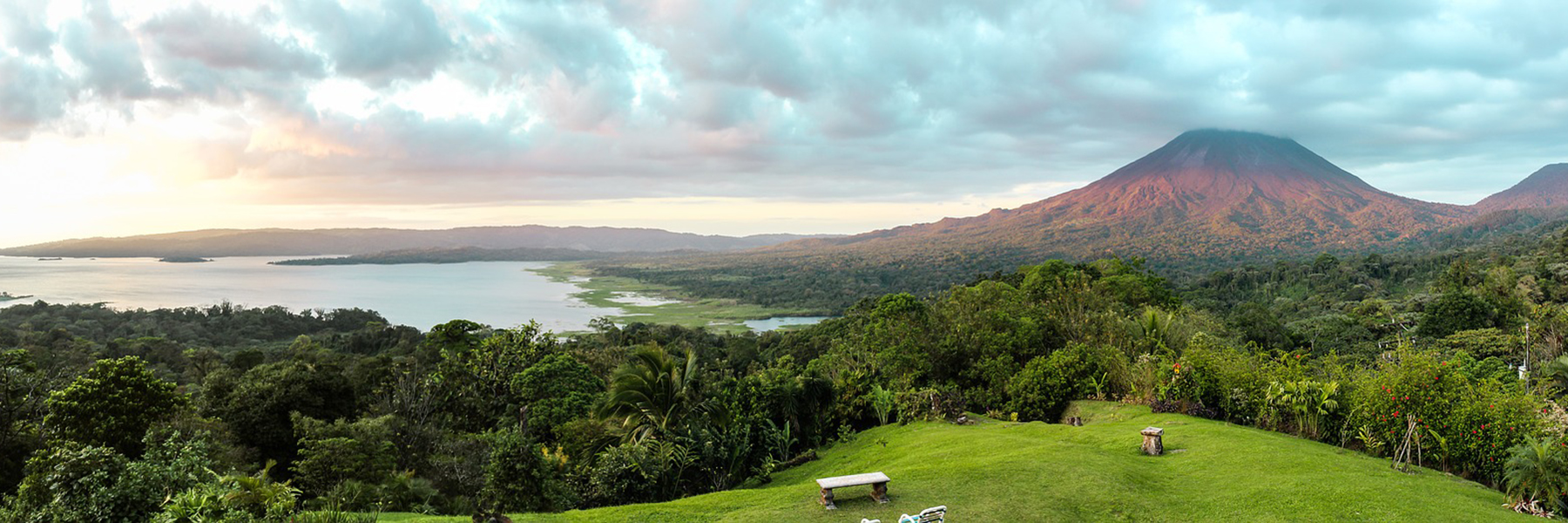This three-week international field course provides a critical evaluation of key theories in planetary health, including the interactions between human, animal, and environmental health, conservation of biodiversity, environmental policy, and sustainable human systems, with an emphasis on place-based learning. Students will visit a series of sites in Costa Rica, relevant to the current climate crisis, including wind and solar farms, biological field stations in tropical forests, and institutions focused on sustainability.
Spend three weeks in Costa Rica as part of an international fieldwork course
Learn more about Planetary Health and Global Climate Change in Costa Rica
July 30-August 20, 2026*
*All travel dates are tentative and subject to international travel restrictions.
November 18, 2025
| Hutton Honors Study Abroad Fair 3:00-5:00pm HHC Great Room |
Course Title: HON-H251: Planetary Health and Global Climate Change in Costa Rica (3 cr.)
HON-X298: Honors Research: International Fieldwork (1 cr.)
Academic Directors & Instructors: Michael Wasserman & Andrew Libby
Syllabus Description: This three-week international field course provides a critical evaluation of key theories in planetary health, including the interactions between human, animal, and environmental health, conservation of biodiversity, environmental policy, and sustainable human systems, with an emphasis on place-based learning. Utilizing global climate change as a focus for our exploration of planetary health across Costa Rica, students will visit a series of relevant sites to the current climate crisis, including wind and solar farms, biological field stations in tropical forests, and institutions focused on sustainability. Global climate change is one of the most pressing issues of our time, yet there remains much confusion regarding its scientific background among the public and policymakers and continued arguments among politicians over the best way to deal with its consequences. We will address the science and politics of climate change in this class using an interdisciplinary approach that examines the issue across Costa Rica. Scientifically, we will examine the basics of climate science, how climate influences organisms and ecosystems, how humans influence the climate, and the ways organisms deal with climate change biologically. An emphasis will be placed on the role of climate change in ecological and evolutionary processes, how human activity interacts with these processes, and the consequences of this interaction on human health and sustainability. Complementing the science, we will also look at the historical and political context in which the science operates. Specifically, we will consider the processes of industrialization that are driving climate change, the current rhetoric and consequence of climate change denial, and responses to that denial. Finally, we will examine how humans are dealing with climate change through technological advances, public policy agreement, and conservation and the success, or lack thereof, of those efforts. As part of the course, students will conduct independent research during their field experiences. Results from this work will be evaluated in the context of larger regional and global trends and presented in a public blog throughout the course and a final radio segment upon returning from Costa Rica.
- Visits to farms to learn about sustainable farming in Costa Rica.
- Visits to wind farms and hydroelectric plants to discuss Costa Rica's approach to carbon neutrality.
- Excursions to national parks and protected nature areas.
Program participants will primarily stay at field stations. Arrangements for accommodations have been made in coordination with the Organization for Tropical Studies (OTS) in Costa Rica. Field station lodging, collaboration spaces, classrooms, a cafeteria, soccer fields, and labs cover all needs for visitors. Each student will share a dormitory style room with a shared bathroom, furnished with a bed, desk, and chair. Field stations will do laundry for a small fee. Additionally, program participants will be housed overnight in the local community as part of a short homestay experience towards the end of the program.
Summer 2026 Program Fee - $4000*
The program fee includes accommodations (both program housing at field stations and additional excursion accommodations in between sites), most meals, transportation to and from all field sites and excursion sites, entry fees to all sites, student travel insurance, and administrative fees.
*Program fee is subject to change due to unforeseeable circumstances.
Additional Variable Costs
Variable costs are paid before and after you arrive in Costa Rica as you pay for roundtrip international airfare, some meals, snacks, personal expenses, and independent travel outside the program. See the program fee sheet for more details.
Note: The program fee will appear on your bursar bill and are paid directly to IU. See the program fee sheet for more details.
Scholarships
All admitted program participants are awarded an automatic HIEP Hutton Honors Study Abroad Scholarship of $500 applied directly to the program fee. No separate application is required.
Additionally, applicants to Hutton Honors Study Abroad programs may be considered for additional merit and need-based scholarships. If finances will be a barrier to participating in your study abroad experience, we invite you to apply for these awards. Please submit your application no later than your program's final application deadline.
Note: Program participants are not eligible to apply for the HIEP Grant.
Please see the IU Education Abroad Office website for more information on other available scholarships and financial aid opportunities.


